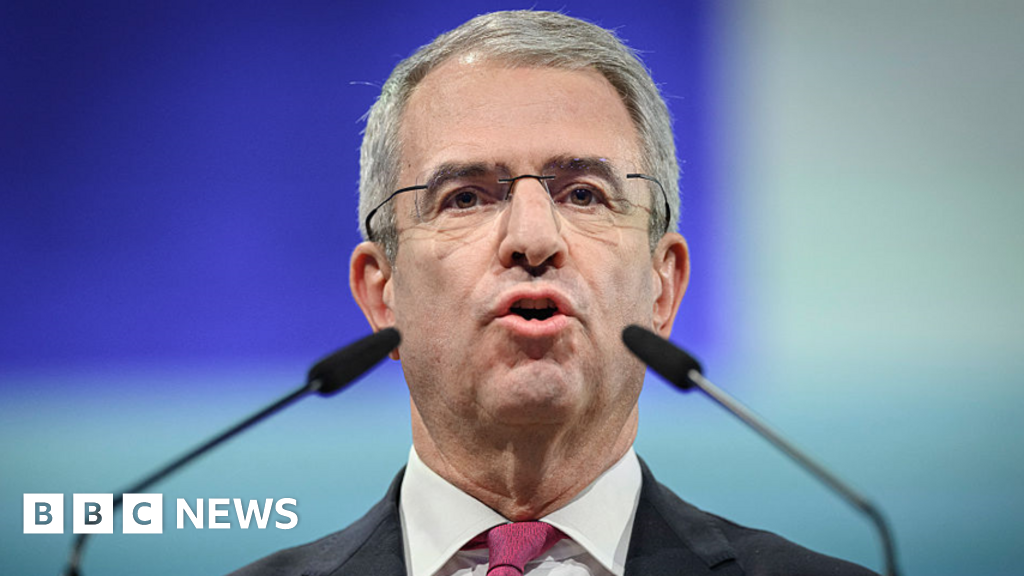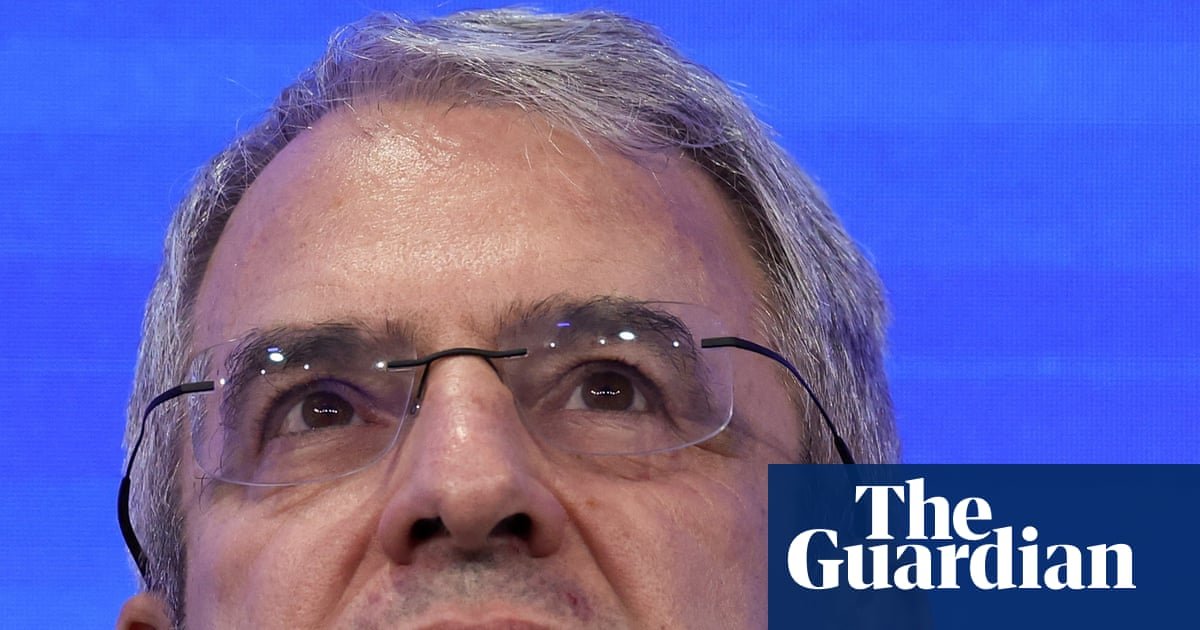Business
Siemens and Dirac Partner to Simplify Machinery Assembly Using AI

If you’ve ever had the pleasure of putting together furniture, you know how grueling it can be to squint at diagrams and guess which screw goes where.
Building submarines and jet engines is certainly more complex than assembling a bed frame, but when it comes to assembly instructions, even the most advanced manufacturers sometimes face the same headache. One reindustrialization-pilled startup thinks it has the fix.
“You know that paper instruction book that tells you how to build something?” Fil Aronshtein, Dirac’s cofounder and CEO, asked, referencing a harrowing experience with an Ikea bookshelf. “It turns out everything around us also needs assembly instructions.”
Aronshtein says BuildOS, Dirac’s main product, is a software tool that uses AI to generate assembly instructions for manufacturers. The startup raised nearly $11 million from Founders Fund and Coatue Management — and struck a new partnership with industrial manufacturing giant Siemens.
Typically, the workflow for building a piece of hard tech goes something like this: “Some dude gets a CAD file over email, takes hundreds of screenshots manually, figures out what order to do the assembly, then takes all those screenshots and throws them together into a 100-page PowerPoint,” Aronshtein said. “It’s super manual, and super tedious.”
Instead of relying on humans to stitch together those convoluted instructions, the 18-person startup says it uses artificial intelligence to determine the order of assembly. (Aronshtein declined to disclose whether the company uses a foundation model or trains its own.)
In 2023, Aronshtein cofounded Dirac with Peter Weiss, a college friend who briefly worked as a software engineer at Amazon. Aronshtein had a short stint at Northrop Grumman. The two met as electrical engineering undergrads at Johns Hopkins, where they both earned master’s degrees in robotics.
With the Siemens partnership under its belt, Dirac is integrating BuildOS with Teamcenter, Siemens’ engineering management software. That integration will allow Dirac to work more closely with Siemens’ customer base, said Tomas Klausing, a director of technology partnerships at Siemens. (Aronshtein wouldn’t name customers but said Dirac is working with “some of the coolest companies on the planet in aerospace, defense, automotive, agriculture, construction, machinery, and maritime.”)
Dirac isn’t the only company trying to modernize the shop floor. Tulip, a manufacturing software startup that last raised $100 million in 2021, is also making software for machinery with a platform that aims to track factory production and equipment assembly.
‘Capacity to Build’
Much of Dirac’s origin story is tied to Silicon Valley’s recent push to “reindustrialize” the US, a movement aimed at reshoring production and keeping pace with China’s blistering industrial growth.
“The foundation of the West was built upon our capacity to build,” Aronshtein said. But during his time at Northrop Grumman, he was struck by how “ridiculously archaic all of the infrastructure was on the manufacturing side” — something he wanted to change.
That insight came as funding for defense tech startups was surging. Trae Stephens, a partner at Peter Thiel’s Founders Fund and cofounder of Anduril, bet on Dirac after seeing firsthand how much the defense industry hinged on US-based production.
Getting America’s factories up to speed has become a recent obsession among venture capitalists: “The investments that we make become consensus,” Stephens told Business Insider about Founders Fund. “The most pro-democracy, pro-West decision we can make is to bring automation and robotics into manufacturing.”
For Thomas Laffont, cofounder of Coatue, the Dirac investment was also about leveraging software for hardware.
“There’s a broad movement toward rebuilding infrastructure. The obvious issue with that is, we need to do it in a way that is cost consistent,” Laffont told Business Insider. “Then the question will be, ‘How do we make reindustrialization work within an economic constraint?’ We think it’s AI and software.”
Business
Nestle fires boss after romantic relationship with employee

Nestle has fired its chief executive after just one year in the job because he failed to disclose a “romantic relationship” with a “direct subordinate”.
The Swiss food giant, which makes Kit Kat chocolate bars and Nespresso coffee capsules, said Laurent Freixe has been dimissed with “immediate effect” following an investigation led by Nestle’s chair and lead independent director.
The BBC understands the inquiry was triggered by a report made through the company’s whistleblowing channel.
Nestle chair Paul Bulcke, said: “This was a necessary decision. Nestlé’s values and governance are strong foundations of our company. I thank Laurent for his years of service at Nestlé.”
The relationship was with an employee who is not on the executive board and the investigation began because it represented a conflict of interest, the BBC has learned.
Mr Freixe had been with Nestle for nearly 40 years but stepped up to the global chief executive role last September, replacing Mark Schneider.
Philipp Navratil has been appointed as Mr Freixe’s successor.
Mr Bulcke said the company was “not changing course on strategy and we will not lose pace on performance”.
Business
Reshuffle gymnastics prepare Starmer to walk tricky budget tightrope | Economics

Dan York-Smith, the former senior Treasury official Keir Starmer has appointed as his principal private secretary, is a qualified international gymnastics judge – a skill set that may come in handy as Labour limbers up for the formidable balancing act of Rachel Reeves’s autumn budget.
After a dizzying series of backflips on tax and spending, some of which were blamed squarely on the chancellor, the government is preparing to raise taxes – at the same time as acknowledging that with inflation on the rise again, the public are still in the grip of a cost of living crisis.
As well as York-Smith, who previously coordinated fiscal events at the Treasury and is well liked by colleagues across Whitehall, Starmer has pinched Reeves’s No 2, Darren Jones, to be his own “chief secretary” – a previously nonexistent job. The former Bank of England deputy governor Minouche Shafik, a well-respected economist, will be Starmer’s economic adviser.
Economists and former government advisers welcomed the reshuffle, suggesting it was high time for Starmer to take more interest in the direction of economic policy.
Jonathan Portes, a former senior government economist, said it was always a mistake to subcontract tax and spend entirely to the Treasury. “It is a well-functioning department staffed by people who know what they’re talking about and if it’s not politically challenged by No 10 things go wrong,” he said.
“Because of the way the Treasury works, it’s intellectually predisposed to do things that are not just politically counterproductive but economically counterproductive. You need somebody in No 10 to push back, and that’s in the interests of the government as a whole.”
Tim Leunig, the chief economist at Nesta, who advised Rishi Sunak when he was chancellor, agreed that part of the problem had been a lack of direction from No 10. However, he suggested any number of new appointments would make little difference without a clearer sense of what the prime minister wants.
“I think all this adds up to absolutely nothing, until Keir Starmer decides what he stands for, and what he stands against,” he said. In particular, Leunig said that would mean deciding which groups to single out to bear the brunt of tax rises – which are widely viewed as inevitable, with the Office for Budget Responsibility expected to downgrade its growth forecasts.
“Unless Labour are willing to say: ‘We’re never going to be a good government unless we’re lucky enough to get growth,’ then they’ve got to learn to pick some losers,” he said. Another former Labour adviser said these risks were particularly grave during tough economic times, when the Treasury tends to go into “finance ministry mode” – focusing above all on balancing the books.
However, Labour’s first year in power has underlined the political challenges of either cutting spending or raising revenue – particularly given the manifesto promises they made not to touch key taxes, including income tax.
Business groups have reacted with fury to Reeves’s £25bn increase in employer national insurance contributions, which has been blamed for putting the brakes on hiring and exacerbating inflation, while backbenchers forced the abandonment of £5bn-worth of disability benefit cuts. The removal of the winter fuel allowance from most pensioners was also almost completely reversed after months of damaging criticism.
Memories of previous disastrously received fiscal statements abound – including George Osborne’s “omnishambles” budget and, of course, Liz Truss’s “mini-budget”, much of which subsequently had to be ditched in the face of market chaos. With bond markets already skittish, the pitfalls are obvious.
As one Labour insider put it, the government’s task in the budget – which is still at least 10 weeks off, with no date yet announced – is to “fill a hole, in a way that makes it not look like they’re filling a hole”.
after newsletter promotion
Reeves, meanwhile, has not yet found a replacement for her former chief economic adviser John Van Reenen, who has cut back his role at the Treasury – although she has roped in the pensions minister and wonks’ wonk Torsten Bell to be her wingman on budget prep.
Jones will be succeeded by the safe pair of hands James Murray, moving up from the post of exchequer secretary to the Treasury. Murray’s successor is another graduate of Bell’s former thinktank the Resolution Foundation – the MP for Chipping Barnet, Dan Tomlinson.
Shafik, too, had some involvement at Resolution, serving as one of the commissioners on its landmark Economy 2030 review – although she is better known as an expert on the international economy.
Margaret Thatcher famously used her economic adviser Alan Walters as an intellectual battering ram against the then chancellor, Nigel Lawson, ultimately leading to the latter’s resignation in 1989.
Few at Westminster expect Shafik to play such a divisive role, however. “She’s not like an Alan Walters figure: she’s not an ideological person,” one Labour insider said.
But given the political somersaults required, Portes argues that it will take serious political commitment from the very top of government to make another tax-raising budget stick. “No 10 and No 11 have to argue it out, agree, and then come out and sell it together,” he said. “And Starmer has to own it, not just Reeves.”
Business
Nestlé sacks CEO over ‘undisclosed romantic relationship’ | Nestlé

Nestlé has dismissed its chief executive, Laurent Freixe, after an investigation into an “undisclosed romantic relationship” with a subordinate that was found to have breached its code of business conduct.
The Swiss-headquartered multinational named Philipp Navratil as his replacement.
Nestlé said Freixe’s departure after 40 years at the company followed an investigation overseen by its chair, Paul Bulcke, and lead independent director, Pablo Isla, with the support of outside counsel, into the relationship with a direct subordinate in breach of company’s conduct code.
“This was a necessary decision,” said Bulcke in a statement. “Nestlé’s values and governance are strong foundations of our company. I thank Laurent for his years of service.”
Freixe took over the chief executive role in September last year after Nestlé, which owns consumer goods brands including KitKat chocolate, Häagen-Dazs ice-cream and Nespresso coffee capsules, ousted his predecessor, Mark Schneider.
Bulcke, who Nestlé announced in June is set to step down as chair next year, said Navratil was “recognised for his impressive track record of achieving results in challenging environments”.
He said Freixe’s successor was “renowned for his dynamic presence, he inspires teams and leads with a collaborative, inclusive management style. The board is confident that he will drive our growth plans forward and accelerate efficiency efforts. We are not changing course on strategy and we will not lose pace on performance.”
Navratil began his career with Nestlé in 2001 as an internal auditor. After holding various commercial roles in Central America, he was appointed country manager for Nestlé Honduras in 2009.
He assumed leadership of the coffee and beverage business in Mexico in 2013, and transitioned to Nestlé’s coffee strategic business division in 2020. He moved to Nespresso in July 2024, and joined Nestlé’s executive board on 1 January this year.
In September 2023, the chief executive of the oil multinational BP resigned after failing to reveal relationships with colleagues.
Bernard Looney was subsequently formally dismissed from his one-year notice period for serious misconduct after an investigation by the BP board and its advisers found he had knowingly misled his fellow directors when they sought assurances regarding his disclosure of past relationships and his future behaviour.
after newsletter promotion
The decision meant he was denied more than £32m in pay and share awards. Looney was replaced as CEO by Murray Auchincloss.
BP subsequently introduced a policy under which employees have to disclose intimate relationships with colleagues or risk losing their jobs.
Reuters and Agence France-Presse contributed to this report
-

 Business3 days ago
Business3 days agoThe Guardian view on Trump and the Fed: independence is no substitute for accountability | Editorial
-
Tools & Platforms3 weeks ago
Building Trust in Military AI Starts with Opening the Black Box – War on the Rocks
-

 Ethics & Policy1 month ago
Ethics & Policy1 month agoSDAIA Supports Saudi Arabia’s Leadership in Shaping Global AI Ethics, Policy, and Research – وكالة الأنباء السعودية
-

 Events & Conferences3 months ago
Events & Conferences3 months agoJourney to 1000 models: Scaling Instagram’s recommendation system
-

 Jobs & Careers2 months ago
Jobs & Careers2 months agoMumbai-based Perplexity Alternative Has 60k+ Users Without Funding
-

 Funding & Business2 months ago
Funding & Business2 months agoKayak and Expedia race to build AI travel agents that turn social posts into itineraries
-

 Education2 months ago
Education2 months agoVEX Robotics launches AI-powered classroom robotics system
-

 Podcasts & Talks2 months ago
Podcasts & Talks2 months agoHappy 4th of July! 🎆 Made with Veo 3 in Gemini
-

 Podcasts & Talks2 months ago
Podcasts & Talks2 months agoOpenAI 🤝 @teamganassi
-

 Mergers & Acquisitions2 months ago
Mergers & Acquisitions2 months agoDonald Trump suggests US government review subsidies to Elon Musk’s companies




















